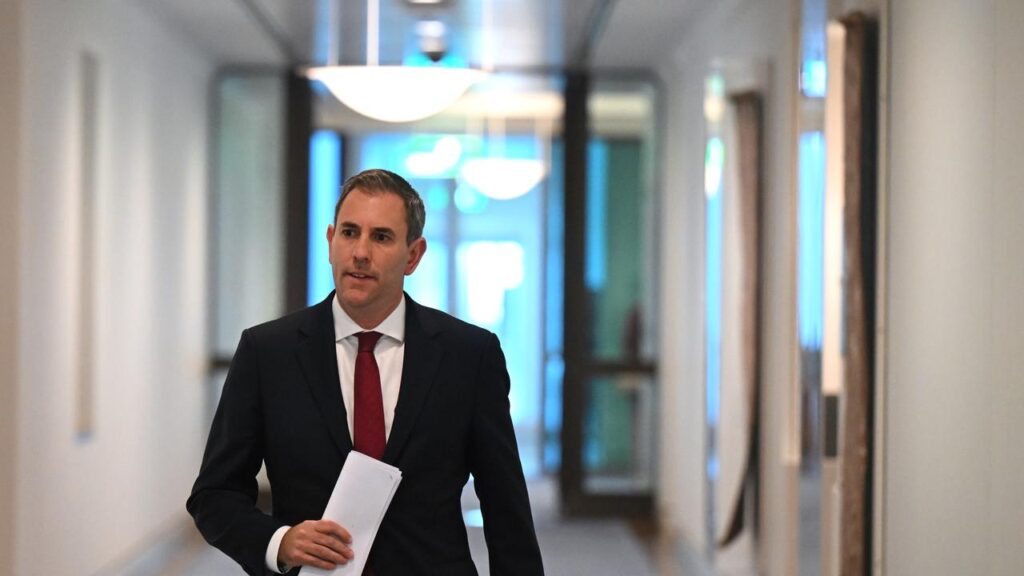Productivity to dominate agenda as symposium begins
Kat Wong |

One of the leading events on the economic calendar is set to consume federal parliament as the nation’s top minds scry for a solution to Australia’s slumped productivity.
Treasurer Jim Chalmers will finally convene his economic reform roundtable on Tuesday after weeks of anticipation.
Heavyweights in the field, like former treasury secretary Ken Henry, consumer watchdog chair Gina Cass-Gottlieb, Australian Council of Trade Unions secretary Sally McManus, Business Council of Australia chief executive Bran Black and others will gather in Canberra over three days to discuss ways to lift Australians’ living standards.
Productivity will be a primary focus but the forum will also discuss ways to build resilience and strengthen the budget.
The federal government has been teasing the event for weeks as stakeholders submitted ideas to reinvigorate the economy.

Everything from cuts to property investor tax breaks to AI to environmental law reform have been floated but Dr Chalmers has reined in expectations this will result in an immediate shake-up of the economy.
“The best way to think about this reform roundtable is three days which will help inform the next three budgets,” he told AAP.
“It’s not an opportunity to make decisions. It’s an opportunity to inform the decisions of the cabinet.”
Prime Minister Anthony Albanese says his government is “unashamedly open”, though major changes in some areas like tax policy have already been ruled out.
The gathering is expected to dwarf every other economic event in Australia but another on the other side of the globe will still likely make news.
Dozens of central bankers, policymakers, academics and economists from around the world are also expected to gather in the US for the Federal Reserve’s own roundtable.
The three-day Jackson Hole Economic Symposium kicks off on Thursday as the curtains close on Australia’s forum and its experts are expected to discuss productivity and labour markets.

Across the ditch, the Reserve Bank of New Zealand is set to make an interest rate decision a week after Australia’s central bank chose to cut by 25 basis points.
Australia’s corporate reporting season will also continue as companies with companies like Ampol. Woodside, Santos, Bega Cheese, Whitehaven Coal and Inghams all set to reveal their earnings throughout the week.
Wall Street investors, meanwhile, appeared to have a mild case of the jitters on Friday with mixed data clouding the Fed’s next monetary policy. The blue-chip Dow Jones ended higher but other indexes slipped.
There were also hopes President Donald Trump’s meeting with Russian counterpart Vladimir Putin would not only pave the way for a resolution to the Ukraine conflict but determine the outlook for crude prices.
The Dow rose 34.86 points, or 0.08 per cent to 44,946.12, the S&P 500 lost 18.74 points, or 0.29 per cent, to 6,449.80 and the Nasdaq Composite lost 87.69 points, or 0.40 per cent, to 21,622.98.

Australian share futures took a 53-point, or 0.59 per cent, dip to 7,713.
The S&P/ASX200 shrugged off a midday wobble to charge higher by 64.8 points, or 0.73 per cent, to a best-ever close of 8,938.6, a 1.4 per cent gain for the week.
The broader all Ordinaries surged 63 points higher, up 0.69 per cent, to 9,212.1, the best close for Australia’s top 500 stocks, now with a combined value of more than $2.9 trillion.
AAP


